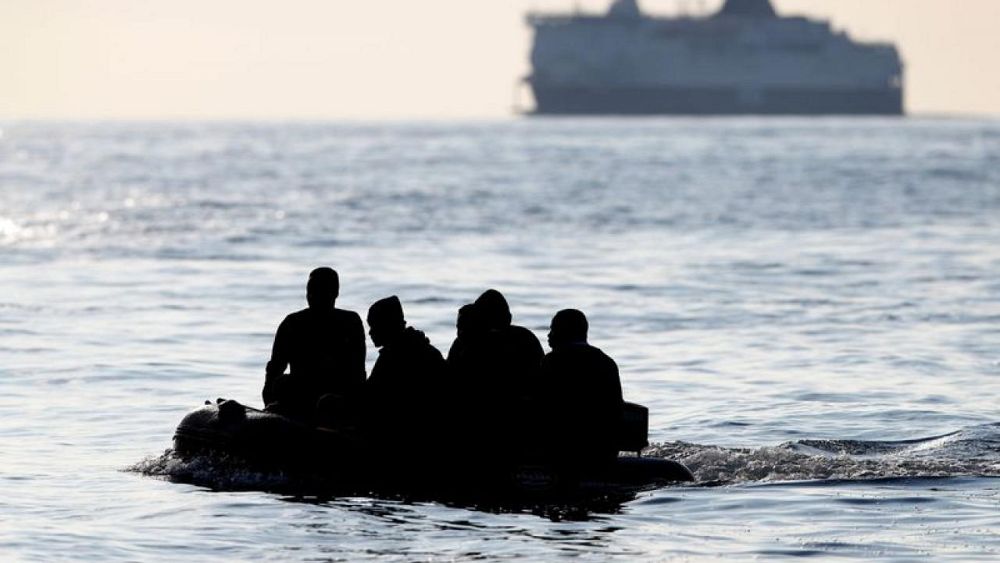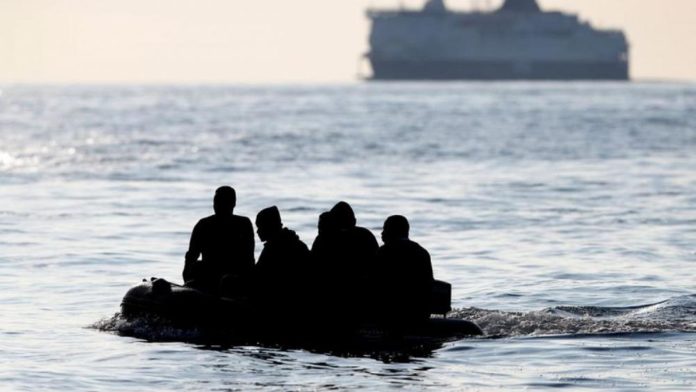
By Lucy Marks and Natalie Thomas
DOVER, England – Sitting in a small boat with 22 other migrants, lashed by driving rain and heaving waves, Abdullah al Badri thought he was going to drown in the English Channel.
The 27-year-old Bedouin from Kuwait had been travelling across Europe for four years, a stateless refugee looking for a new home.
“It was really horrible. It was a way of dying,” al Badri told Reuters as he recalled his crossing to Britain from France. He doesn’t know his exact departure point, but says it was near a forest.
“It was really not easy to go in the boat and I was saying to myself, ‘what’s going to happen? I’m going to die like the child from Syria’,” he said, referring to three-year-old Alan Kurdi, found drowned on a Turkish beach in 2012.
Al Badri said the six-metre boat was buffeted by waves and rain in one of the world’s busiest shipping lanes.
“Then someone fell out of the boat and then we have to get him out (of the water) and everyone gets scared.”
The boat became lost and after 10 hours al Badri called British emergency services, who took them to Dover.
He says it was difficult to leave his family in Kuwait and join a wave of migrants heading out of the Middle East and elsewhere L8N2PB6YJ, fleeing conflict and hardship over the past few years in search of new lives in Europe.
“I’m Bedouin. The reason I left my country is we don’t have status. We don’t have freedom and we don’t have any right to choose in our country,” he said.
Al Badri says he was born without citizenship, unable to access essential services such as healthcare, open a bank account or claim other rights.
The Kuwaiti government did not immediately respond to a request for comment.
Authorities in Kuwait and other Gulf states say many stateless people are “illegal residents” and include immigrants who hid or destroyed their passports to claim nationality and take advantage of financial benefits granted to citizens.
Many people among the nomadic Bedouin tribes failed to acquire citizenship when Kuwait became independent in 1961.
PEOPLESMUGGLERS
Unable to get a passport, al Badri said his family raised 9,000 Kuwait dinars ($20,000) in 2017 to pay people smugglers who facilitated his travel over the next four years, starting with a flight to Turkey on falsified documents.
He travelled on to Greece and then Belgium, where he stayed for two years before his refugee claim was rejected. He went to Switzerland and then France, where he began what he hopes was his final journey to Britain.
Al Badri is awaiting an interview with immigration officials to determine his refugee status. If refused, he believes he would be deported.
The British government says it wants to make the country less atrractive to asylum seekers. Under proposed legislation, those trying to enter illegally would face up to four years in prison.
Al Badri was among thousands who crossed the Channel in small boats this year. He said he did not know it was illegal.
In July, the French and British governments announced they planned to intensify efforts to intercept vessels and stop boats making the perilous voyage.
At least 482 migrants crossed the Channel by boat on Wednesday, a record daily number, the Home Office said.
Another man who took made the Channel crossing said he knew it was illegal but felt he had no choice.
He asked Reuters not to identify him for fear of repercussions for his family in Iraq. He said he fled persecution and had suffered repression as a gay man.
“Three times I was in jail, just for that reason, I am gay,” he said.
He said a police officer had assaulted him and said: “We will tell your family you are gay and when they know you are gay they will kill you.”
“Because we have a problem in Iraq, in the Middle East with the culture, with our religion, they don’t accept your life,” he said.
Iraq’s government says it is committed to guaranteeing rights for all minority groups, but its largely conservative society generally frowns upon homosexuality and gay men mostly try to hide their sexuality.
The 32-year-old said he never felt safe in Iraq and so decided to leave. After two years in Germany and failing to gain refugee status, he travelled through France and headed for Britain.
Now living in Leeds, in northern England, and awaiting an interview to assess his refugee status, he is improving his language skills and hopes to work as an interpreter.








